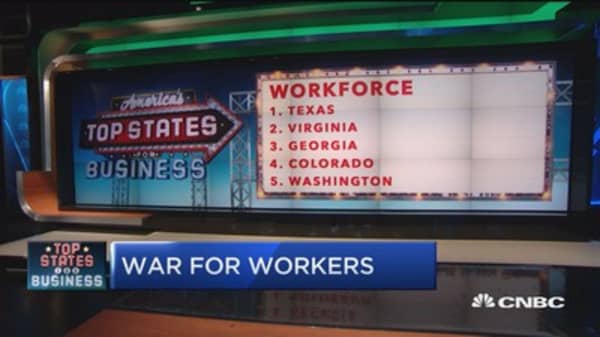Then-candidate Donald Trump made American jobs a hyper-politicized issue, and even though unemployment is low, it's still big news when Carrier lays off workers in Indiana or when Taiwanese electronics giant Foxconn eyes Midwestern states to possibly create thousands of new jobs.
States and localities spend aggressively to lure private investment: one academic study estimated $70 billion per year — and that was before the Great Recession prompted some governors and mayors to double down on tax-break offers.
About half the states have enacted special tax breaks for data centers, also known as "server farms," where the cloud of computing data resides. When we examined 11 incentive packages given to data centers for some of the nation's most prominent internet companies (Microsoft, Google, Apple, Facebook, Amazon Web Services), we found costs of almost $2 million per job.













